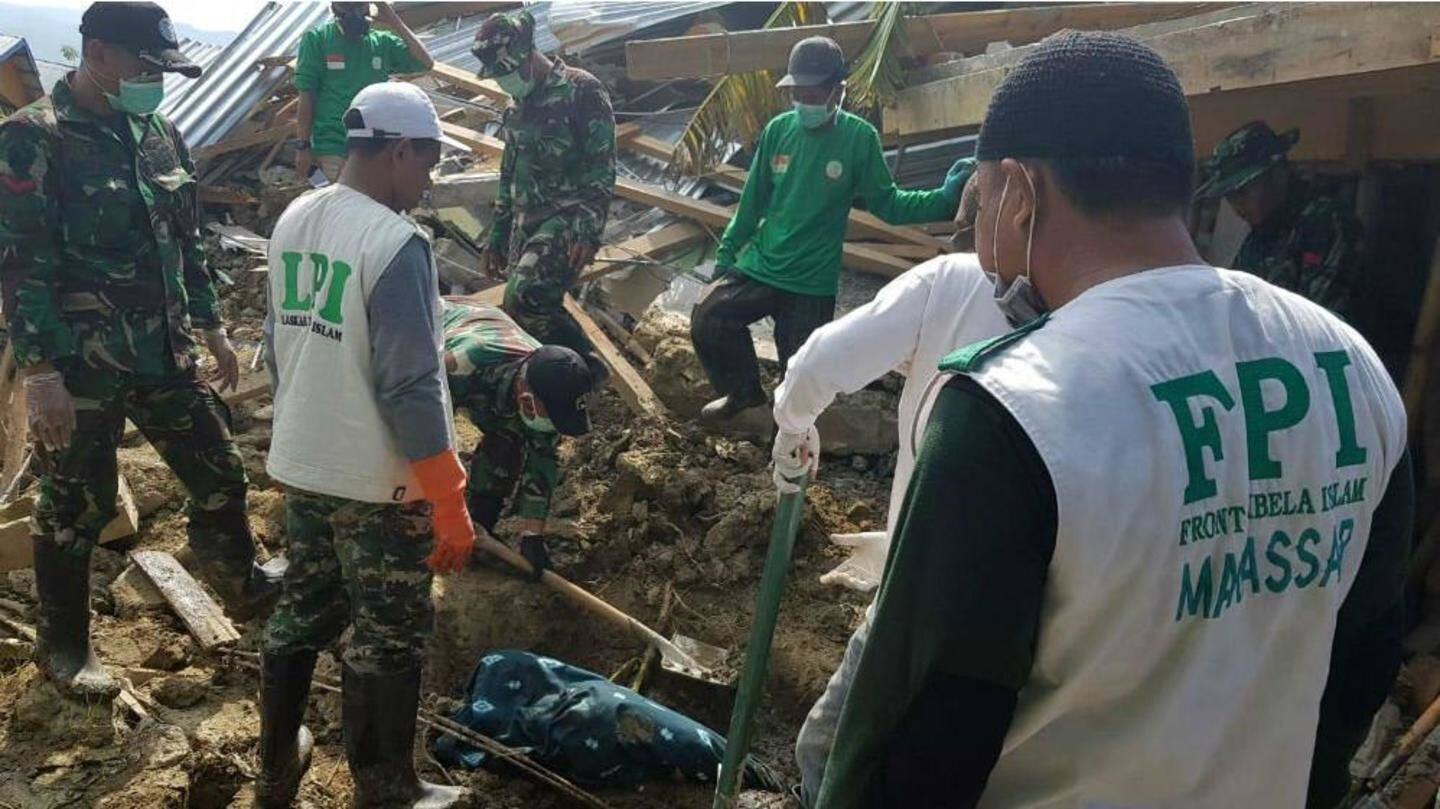
Indonesia quake-tsunami: Last-ditch search for survivors as death-toll crosses 1,500
What's the story
Search teams made desperate last-ditch efforts today to find survivors, a week on from Indonesia's devastating quake-tsunami that killed more than 1,500 people. Palu, a chartered city on the Indonesian island of Sulawesi, has been left in ruins after being hit by a 7.5 magnitude quake and a wall of water on September 28, which flattened homes, ripped up trees, and overturned cars.
Help
Aid is flowing in from all over the world
Governments from Australia to Britain are flying in supplies such as tarpaulins, medical equipment, and generators are now heading from all over the world after a long delay, caused by President Joko Widodo, who had refused any international help. UN has also pledged $15 million to the relief effort, and aid groups including Save the Children and Red Cross are already on the ground.
Death
Death toll reaches 1,558; 100 still unaccounted for
Authorities previously set a tentative deadline till today for finding anyone trapped under ruined buildings, although chances of pulling survivors alive at such a late stage are almost zero. Local military spokesman Muhammad Thohir said that the death toll reached 1,558. Over 100 people are still unaccounted for, while hundreds of bodies have been buried in mass graves in to avert a disease outbreak.
Information
Search and rescue agencies using heavy equipment to sift through
Search efforts focused on eight key locations today, including the Balaroa area where the quake temporarily turned the earth to mush. "We've to use heavy equipment now because it's difficult to sift through rubble by hand," said Yusuf Latif of Indonesia's search and rescue agency.
Disappointing
Frustration growing among search agencies over signs of missing life
At the badly damaged Mercure Hotel on Palu's waterfront, there was growing frustration among a French and Indonesian search team. The rescuers, using sniffer dogs and scanners, had detected what they believed was a person under mounds of rubble the previous evening but when they resumed the hunt early Friday, "We have no signal," said Philippe Besson, President of the International Emergency Firefighters.
Slow progress
Good sign: Life returning to normal at some places
Currently, some roads in the area remain impassable, detritus from the tsunami is scattered everywhere while terrified people are sleeping outside for fear of further quakes. Nevertheless, there were signs of life returning to normal, with children playing in the streets, radios blaring out music, and electricity back up and running in most places. "Things are improving," Azhari Samad, a 56-year-old insurance salesman.
Time
But it will still take years to completely recover: Locals
But for the area to recover fully from the disaster "will take years", Samad added. "The first six months will be traumatic, maybe in one year, we'll have some progress. The government will help, people will help. Indonesians have a big heart," he claimed. Meanwhile, improvised white flags, a pillowcase or duvet cover, were seen flying outside many homes, signifying death in the family.
'Ring of Fire'
Indonesia is one of world's most earthquake prone areas
In these desperate times, survivors also ransacked shops and supply trucks hunting for basics, prompting security forces to round up suspected looters and warn that they will fire on thieves. However, the bad news is this may not be the last earthquake the country faces. In fact, Indonesia is the world's most tectonically active region since it sits along the Pacific "Ring of Fire".